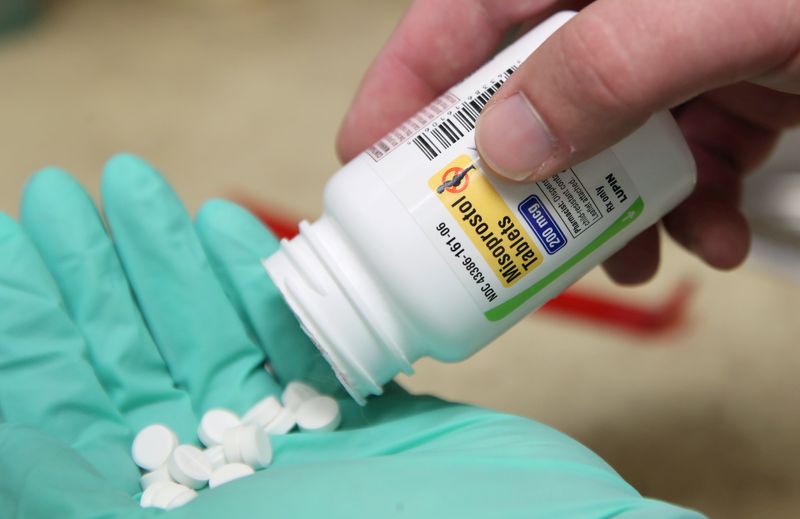By Ahmed Aboulenein and Brendan Pierson
(Reuters) - The Louisiana Senate's vote on Thursday to reclassify the two drugs used in medication abortion as controlled substances marks the latest development in a nationwide battle over abortion pills.
Here is a look at what the law does, and what might happen next.
HOW DOES LOUISIANA'S LAW ADD TO ABORTION RESTRICTIONS?
The law classifies mifepristone and misoprostol as Schedule IV substances, meaning they require greater oversight due to a potential for abuse or dependence.
That puts the abortion pills in same category as anti-anxiety medications Xanax and Valium. The law makes it a crime to possess them without a prescription or outside of professional medical practice, punishable by one to five years in prison and fines of up to $5,000.
This makes it riskier for Louisiana residents, who are already subject to a near-total ban on abortion, to bring pills that can terminate a pregnancy from out of state or order them online without a prescription.
WHO ELSE IS AFFECTED?
Pregnant women are exempt from prosecution, but any other person who might help them obtain the drugs, like friends and family or providers, are not. Neither are women who are not pregnant but want to acquire them as a precaution.
Doctors will need a special license to prescribe the drugs and those prescriptions would be logged in a state database that law enforcement can access with a warrant. That could make doctors hesitant to prescribe them and compromise patient privacy.
Critics say the law will also make it harder for people who need misoprostol for other conditions. The drug is used to induce labor, treat miscarriages, reduce the risk of serious bleeding from ulcers and other indications.
COULD THE LAW BE CHALLENGED IN COURT?
Yes. Women and doctors in Louisiana, and the makers of the drugs, could all argue that they are harmed by the law and have legal standing to challenge it.
One potential argument is that the law violates Louisiana residents' basic rights under the state constitution by restricting necessary medical care.
Plaintiffs could also say that the law conflicts with the federal government's policy of making the drugs available. The only comparable case, however, is a 2014 court ruling that Massachusetts could not ban a prescription painkiller outright, which Louisiana's law does not do.
ARE OTHER STATES CONSIDERING SIMILAR LAWS?
Reuters was not able to identify similar proposals, but past experience suggests copycat laws are likely. For example, after Texas passed a law allowing private lawsuits against people who aid or abet in obtaining an abortion, several other states followed suit.
WHERE ELSE IS THE FIGHT OVER ABORTION PILLS UNFOLDING?

The U.S. Supreme Court is currently considering a lawsuit in which anti-abortion medical groups and doctors are seeking to restrict mifepristone, including through a ban on prescribing it by telemedicine or dispensing it by mail.
Meanwhile, several Democratic-led states have passed so-called "shield laws" meant to protect doctors who prescribe abortion pills across state lines to patients where abortion is illegal.